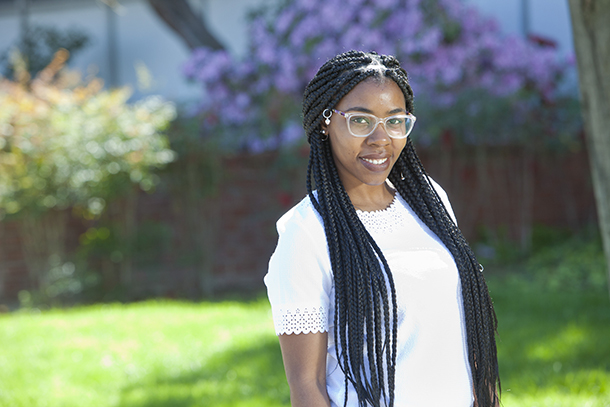When Roneisha Joyner was applying for physical therapy schools across the nation, she noticed there weren’t a lot of people in the profession who looked like her.
It’s an observation borne out by the data. A little more than 5 percent of U.S. physical therapists are African American, according to the U.S. Bureau of Labor Statistics. The professional pipeline doesn’t provide much relief. This year, 3 percent of all Doctor of Physical Therapy students across the nation were African American, according to the Commission on Accreditation in Physical Therapy Education. USC fares better, with African Americans making up nearly 10 percent of its physical therapy student body.
“I wanted to see a change in this and to use tools to help better prepare students from all backgrounds to go to physical therapy school, especially as it becomes a more competitive field,” Joyner said.
Physical therapy is an option
Upon acceptance to the DPT program at the USC Division of Biokinesiology and Physical Therapy in 2015, Joyner immediately dedicated herself not only to her academic pursuits but also to student leadership.
She became involved with groups such as the USC Physical Therapy Multicultural Leadership Alliance (PTMLA), which promotes the physical therapy profession as a career option for high schoolers from underrepresented backgrounds.
“Making an impact on this starts with exposure and providing connections and resources to students in different communities by attending school health fairs, career days and even volunteering,” she said.
Not only did Joyner visit local high school students with PTMLA, she also recently returned to her undergraduate institution, Dillard University, to help educate prospective students on physical therapy school.
Joyner also participated in the USC Leadership Through Legacy Mentor Program, which gives USC alumni, faculty, staff and supporters the chance to mentor African-American Trojans.
The right profession
After graduation, Joyner said she will continue advocating for diversity through her role on the American Physical Therapy Association’s Global Health Special Interest Group, which aims to provide cultural competency and awareness to the profession.
Now as she becomes “Dr. Joyner,” she looks forward to moving back to her hometown where she plans to work in a hospital setting in acute care.
“My favorite part about being a clinician is working directly with my patients because they always give me more confidence,” Joyner said.
“From relationship advice to war stories to seeing a patient walk for the first time, patients always find ways to make me feel confident that I’m in the exact profession I need to be in.”
— Yasmine Pezeshkpour


